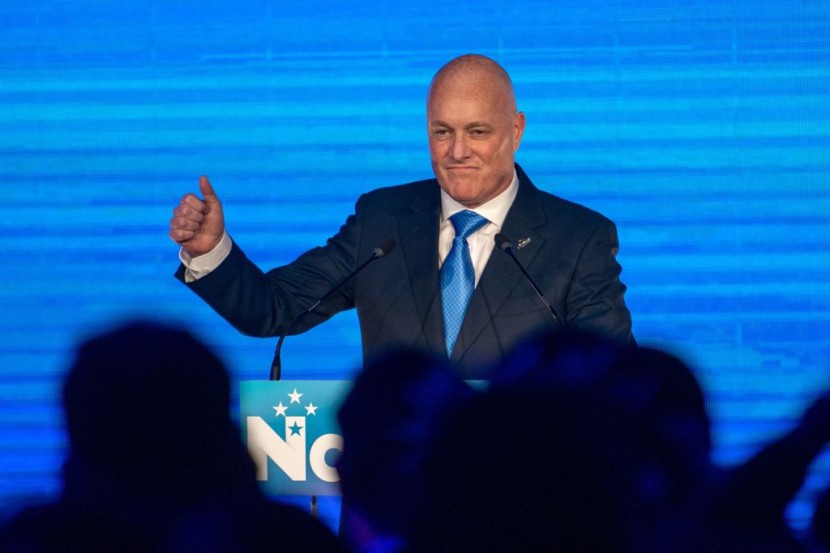
After securing a landslide victory in Saturday's election, Ocotober 14, conservative Christopher Luxon, a former businessman, will succeed Chris Hipkins as Prime Minister of New Zealand. After Jacinda Ardern's liberal administration had been in power for six years, the people voted for a change.
The final composition of Luxon's administration is still up in the air since votes are still being tabulated.
Luxon Becomes PM, Defeating Hipkins
According to AP News, Luxon showed up at the Auckland event and was greeted with loud acclaim. His wife Amanda and their children William and Olivia also made an appearance on stage with him.
Luxon felt a sense of gratitude for the win and expressed excitement about beginning his new role. "You have reached for hope and you have voted for change," he stated.
Hipkins, the interim prime minister who took over for Ardern in January and lasted barely nine months, informed his supporters late Saturday that he had contacted Luxon to concede. Hipkins said that this was not his desired outcome. At a Wellington rally, he addressed the crowd, "I want you to be proud of what we achieved over the last six years."
In January, Ardern abruptly resigned as prime minister, claiming she lacked the energy to complete the job properly. She had a resounding victory in the previous election, but her popularity has since declined as people have grown weary of COVID-19 regulations, and inflation has become a major economic concern.
Hipkins, who is 45 years old, took over as leader when Ardern departed. He was in charge of the government's responses to the pandemic while he was minister of education.
Luxon campaigned on a platform of lowering taxes for middle-class citizens and reducing crime rates. Hipkins campaigned on a platform that included free dental treatment for anybody under 30 and an end to sales taxes on fruits and vegetables.
Shift to the Right
With the majority of votes in, Luxon's National Party was sitting well at over 40% backing. Since votes are distributed proportionally in New Zealand, Luxon will likely join forces with the libertarian ACT Party. Meanwhile, Hipkins' Labour Party was polling at little over 25%, almost half of what it did in the previous election under Ardern.
National was in a close contest for Ardern's previous electoral seat, Mount Albert, which would be especially painful for Labour should it lose the seat. The constituency has always been held by the Labour and was also represented by Helen Clark, another previous Labour prime minister.
Melissa Lee, the National Party candidate for the seat, expressed mixed emotions about the outcome in Mount Albert. "It's been Labour since 1946. It has been the biggest, safest Labour seat forever," she told AP News. "It would be fantastic if we won it."
Lee said that while campaigning, residents informed her they were weary of the present administration and concerned about the economy and rising costs of living.
© 2025 HNGN, All rights reserved. Do not reproduce without permission.








